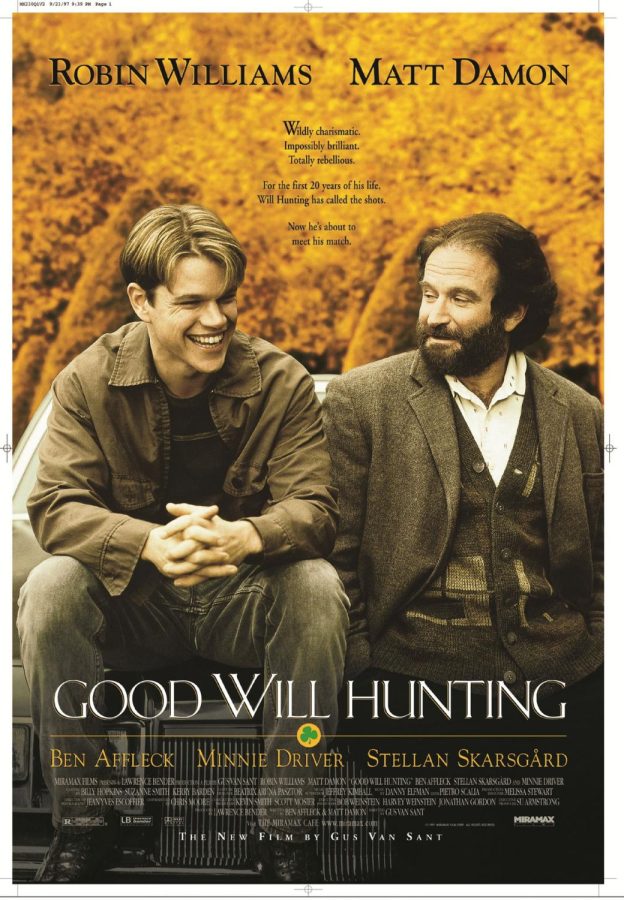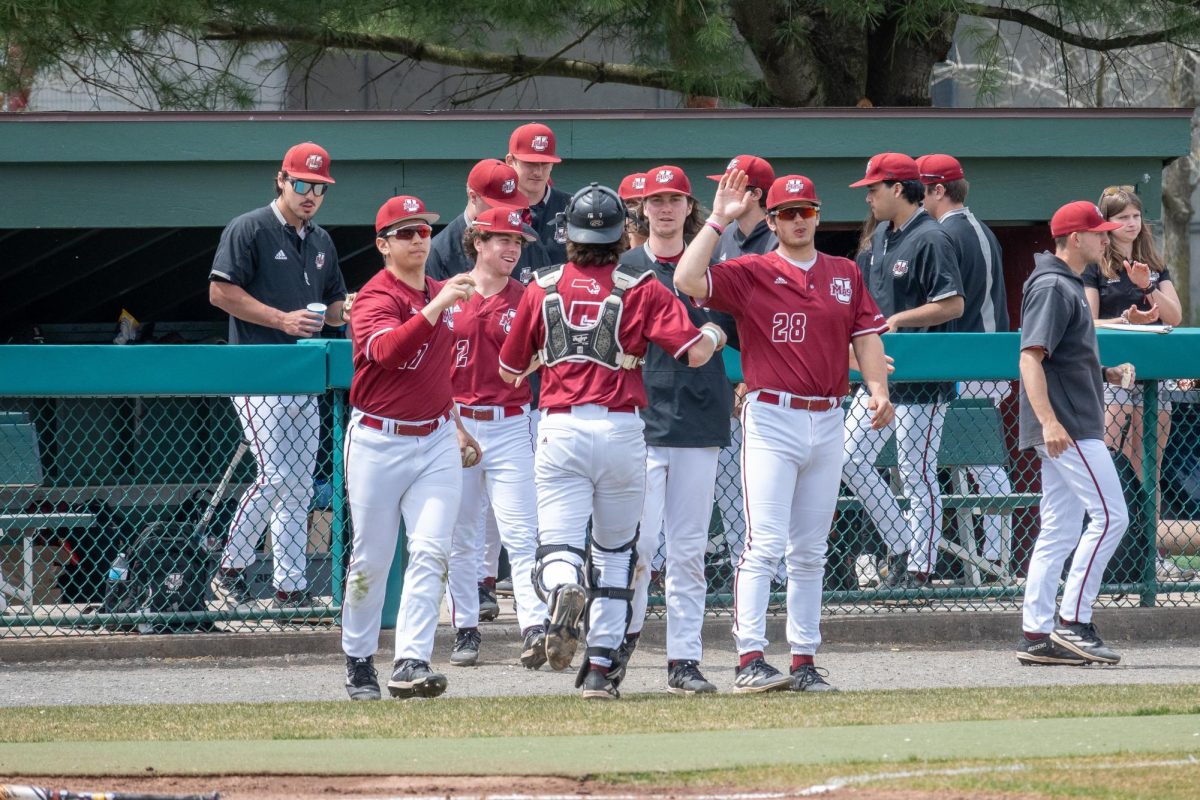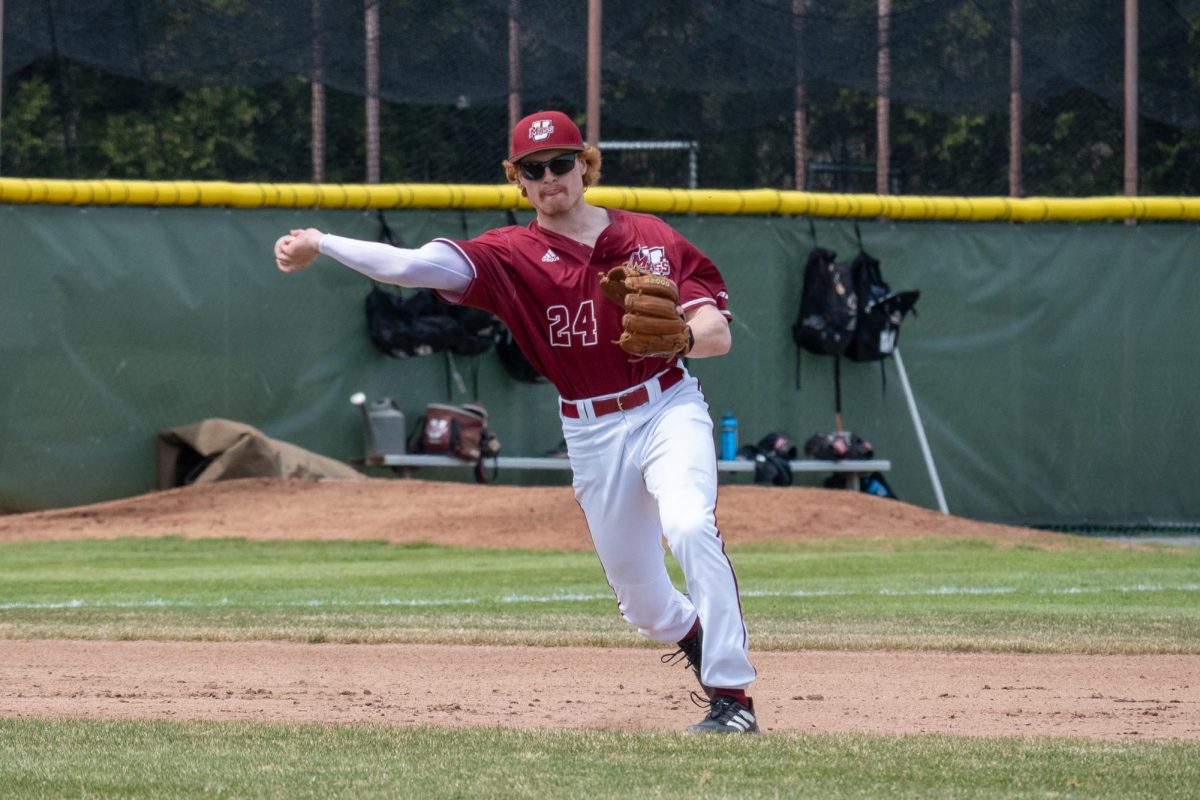Unassuming, quiet and normal — three words I’d use to describe the filming locations of Gus van Sant’s 1997 masterpiece, “Good Will Hunting.”
Written by childhood friends Matt Damon and Ben Affleck before their rise to fame, the film is a coming-of-age story that follows Will Hunting (Damon), a troubled teen working as a night janitor at the Massachusetts Institute of Technology. He possesses a near-genius level of intellect, yet his troubled upbringing has halted him from attending college, much less a prestigious school such as MIT.
Gifted with a photographic memory, Will often solves mathematical problems posed on chalkboards throughout the university; equations that are deemed to be extremely difficult. A math professor discovers him one night and accuses him of vandalism, yet he avoids prison and is sentenced to rehabilitation with therapist Sean Maguire (Robin Williams) instead. The rest of the film follows his journey of self-discovery as he is forced to come face-to-face with his repressed trauma and PTSD, while dealing with a new relationship.
The film resonated with viewers worldwide and is deemed a classic today due to several reasons, the most important being its setting and filming location.
Boston is a city of varying neighborhoods, filled with some of the proudest people I have ever met. Everyone who is from Boston loves Boston, and even 25 years later, the city’s residents remind us of this film’s characters. From college students, to established professors, to sports fans dressed head-to-toe in team gear, Boston is — metaphorically — a loud city. Its residents love telling people “I’m from Boston,” and rightfully so. The city is a melting pot of cultures, historically important and all around beautiful.
Filming movies in Massachusetts in the 90s was a tough undertaking, as it was costly and extensive documentation was required. Popular locations couldn’t just be shut down for a day to accommodate casts and crews, as it was and still is a busy city. However, van Sant fell in love with several inconspicuous locations such as the L Street Tavern, the Boston Public Garden and other small restaurants and bars in South Boston. That’s where the beauty of this film lies, the commonality of it all. Even the most mundane places evoked a sense of belonging, no matter how common its scenery was.
One of the film’s most important scenes takes place on a bench overlooking a pond within the Boston Public Garden, as Will and Sean have their first meeting. Will goes on to make wild assumptions about Sean’s past and about his wife, and he swiftly gets put into his place by Sean through a monologue that is nothing short of memorable.
“If I asked you about art, you’d probably give me the skinny on every art book ever written. Michelangelo. You know a lot about him. Life’s work. Political aspirations. Him and the Pope. Sexual orientation. The whole works, right? But I bet you can’t tell me what it smells like in the Sistine Chapel. You’ve never actually stood there and looked up at that beautiful ceiling. Seen that. If I ask you about women, you’d probably give me a syllabus of your personal favorites. You may have even been laid a few times. But you can’t tell me what it feels like to wake up next to a woman and feel truly happy,” Sean said.
This scene resonated with viewers so strongly, and the very same bench has been named “The Good Will Hunting Bench” by Boston natives. It looks just like every other bench in the park, but to those who know and love this movie, it’s something completely different — a symbol of vulnerability that encompasses much of the film. As a matter of fact, fans turned the bench into a memorial for Robin Williams after his suicide in 2014, and now, it’s home to hundreds of messages and quotes from the film carved into the wood by fans from all over.
This isn’t the only filming location one can visit, though. Many of the film’s backdrops still exist today, such as the L Street Tavern (even though it’s been updated) and the cafe in Harvard Square where Will and Skylar went on one of their dates. One can even ride the T’s red line to MIT just like Will did in the movie. While other locations have changed, Boston’s character remains. Fans are just as appealed as they were in the 90s to visit these places, and that’s part of the reason “Good Will Hunting” is so important.
It allowed for people to truly understand Boston and provided viewers a raw depiction of the city. It’s difficult to capture an honest perspective in movies, especially when editing methods, such as color grading, exist. “Good Will Hunting” simply shines a light on Boston, and it tells viewers to find solace and comfort in places some may deem to be uninteresting.
Sure, there’s other reasons this film did so well with moviegoers. Looking past its love for Boston, the movie is extremely introspective. Even though it’s a simple film, with a relatively easy story to follow and dialogue only when necessary, it’s also a film that many can relate to. Using Will as the titular character sheds light on the fact that not every protagonist has to be perfect, and sometimes, they’re bad people. Will’s mannerisms throughout the film are questionable, and before we truly understand the brevity of his trauma, it seems relatively easy to hate him as a character. However, viewers come to find out that his cold behavior is simply a way for him to shut people out, as he hasn’t had much good luck in the past. It’s a film that tells us it’s alright to not be your best version and reminds us that we’re a work in progress.
For those who haven’t watched the film, it’s a heavy experience. It’s not one with a necessarily happy ending, and it evokes a lot of feelings. For a film that centers around a young man attending therapy, the entire movie itself feels almost like a therapy session — cathartic and honest.
For those who have watched this, however, I’d like to add one thing regarding that very first “impossible” calculus equation Will is able to solve in one night. According to Lisa Sauermann, a mathematics professor at MIT, the problem really isn’t that difficult, and “it is an exercise that one can give to a middle school student.” After looking at it for a few minutes, though, I think it’s time I go back to middle school.
Ashviny Kaur can be reached at [email protected].



















